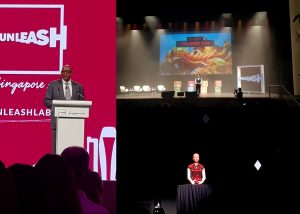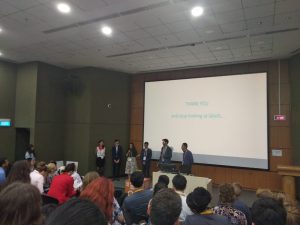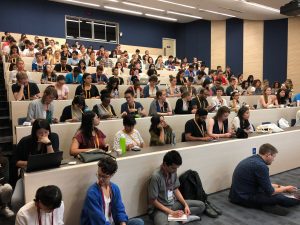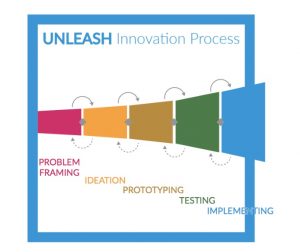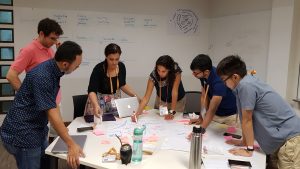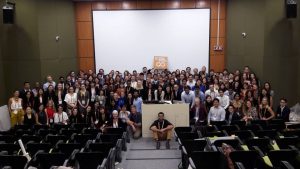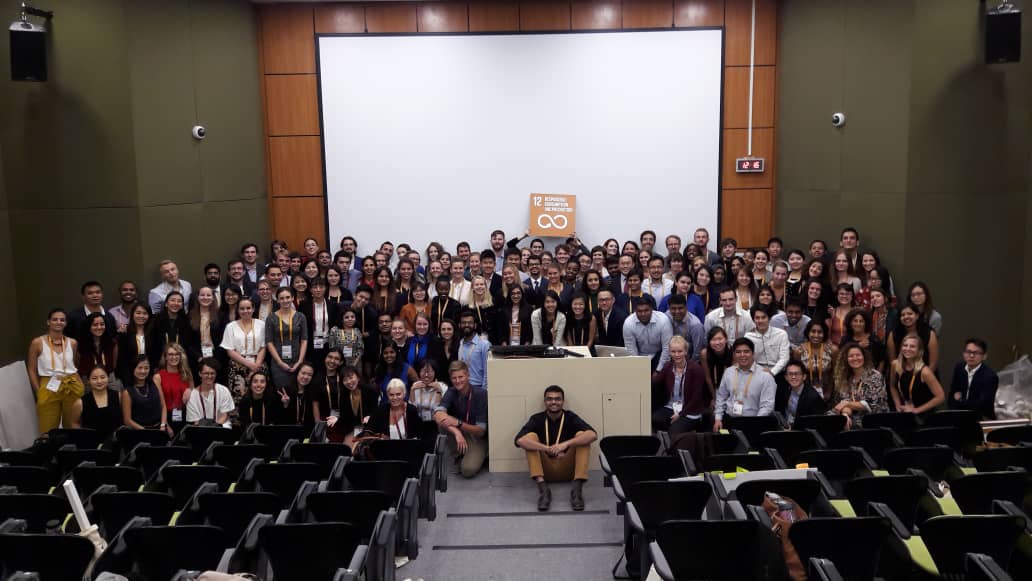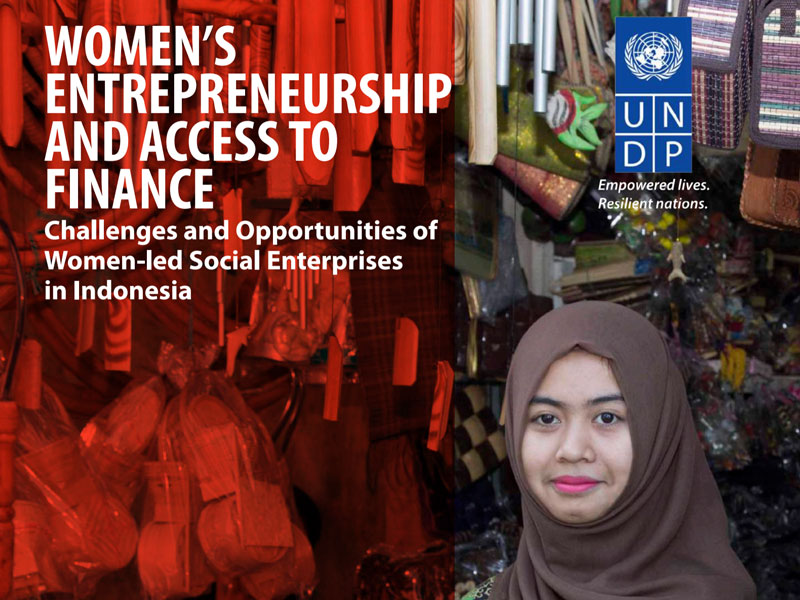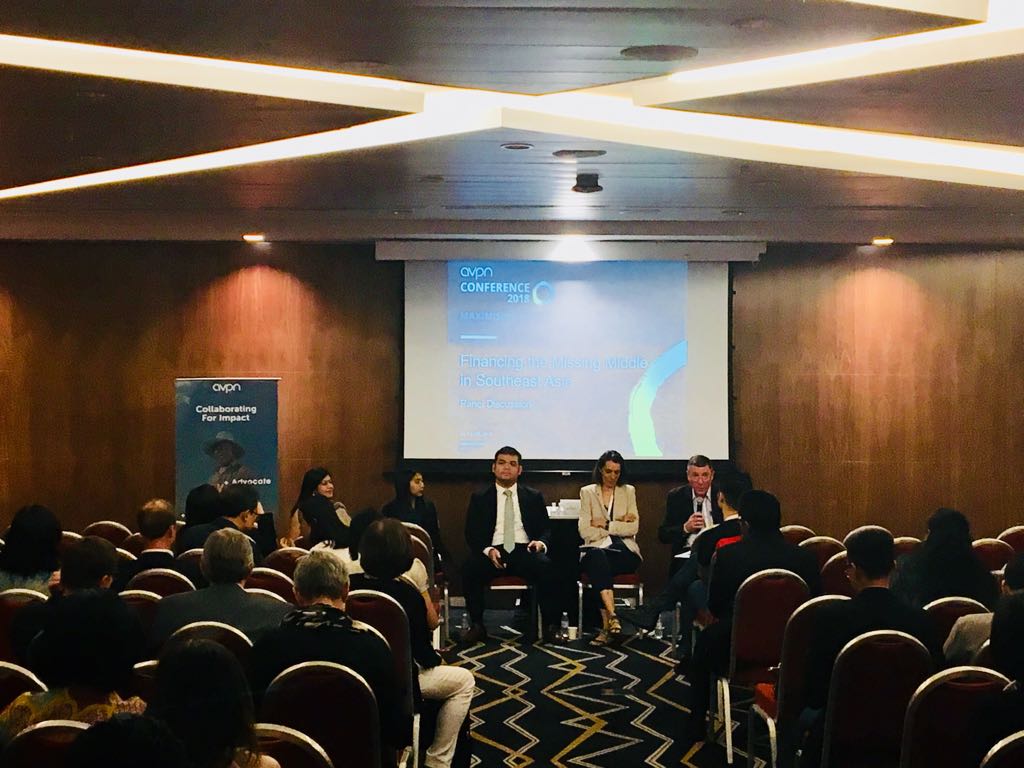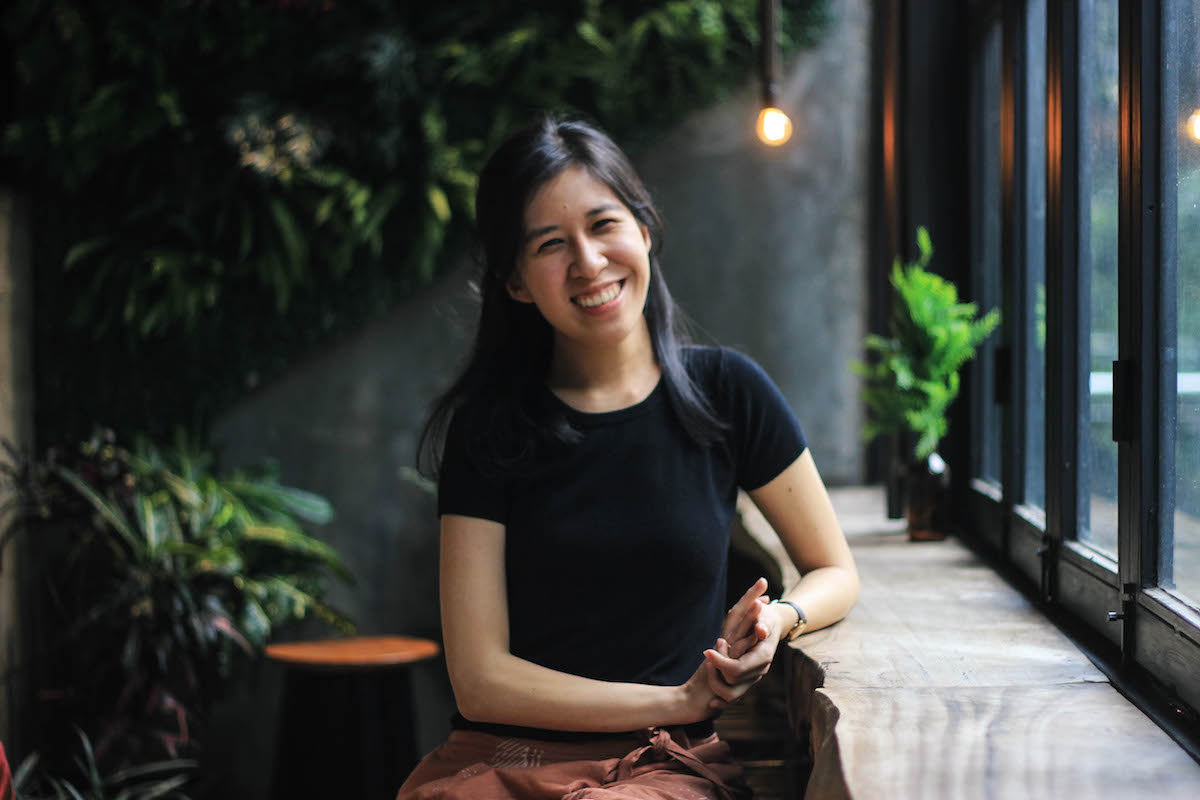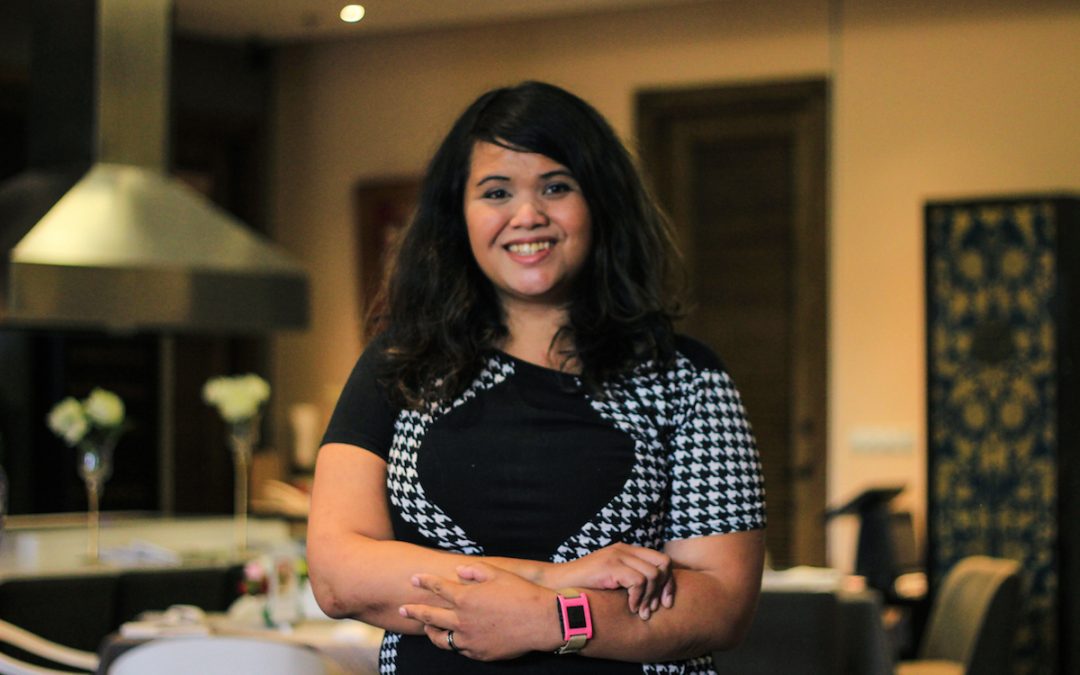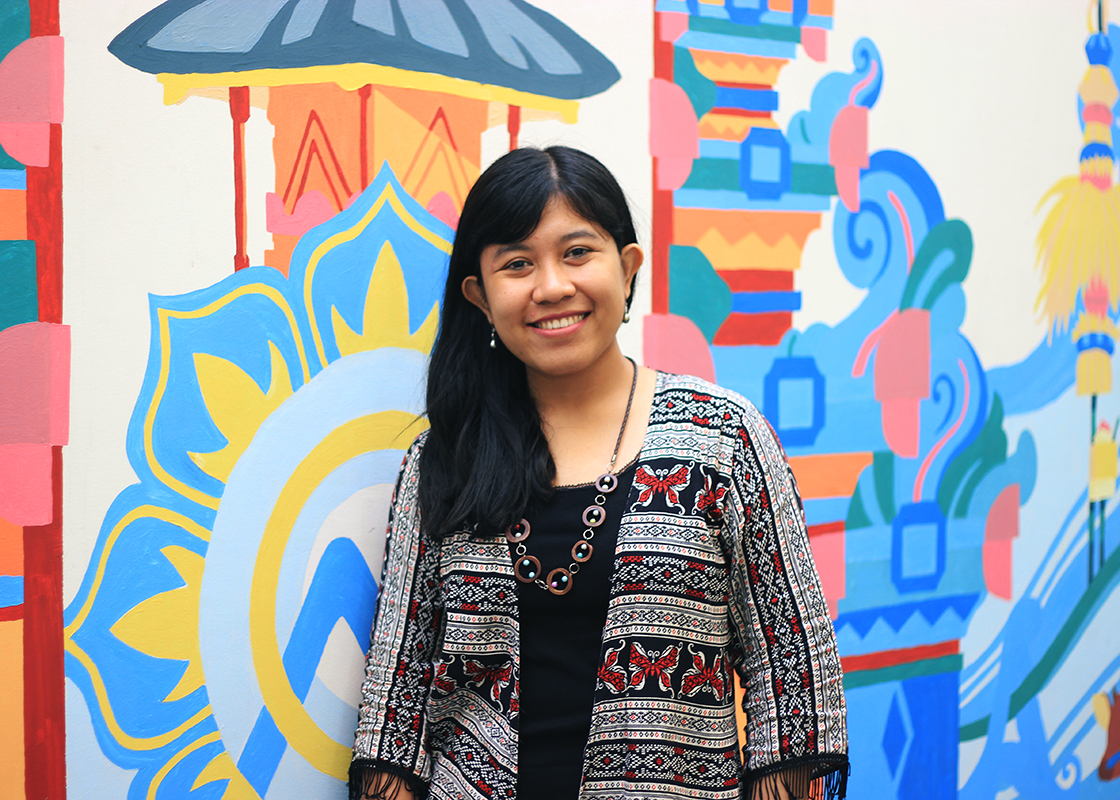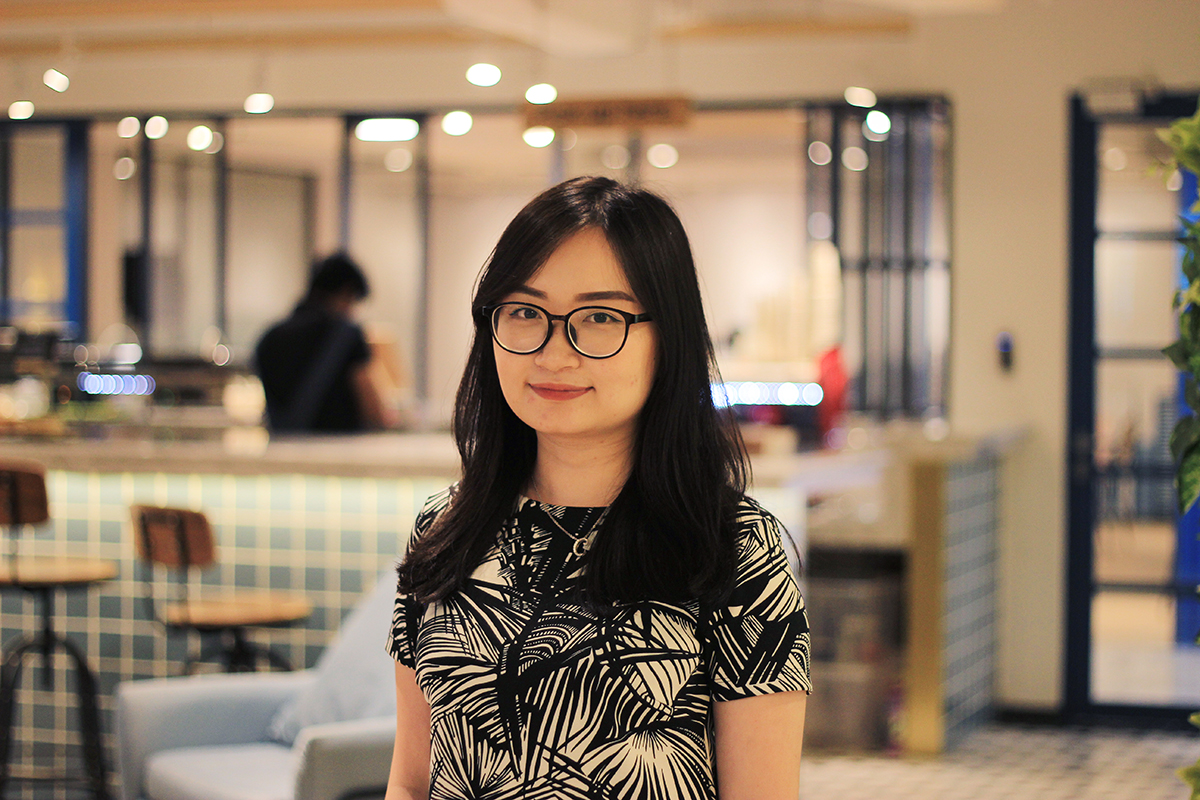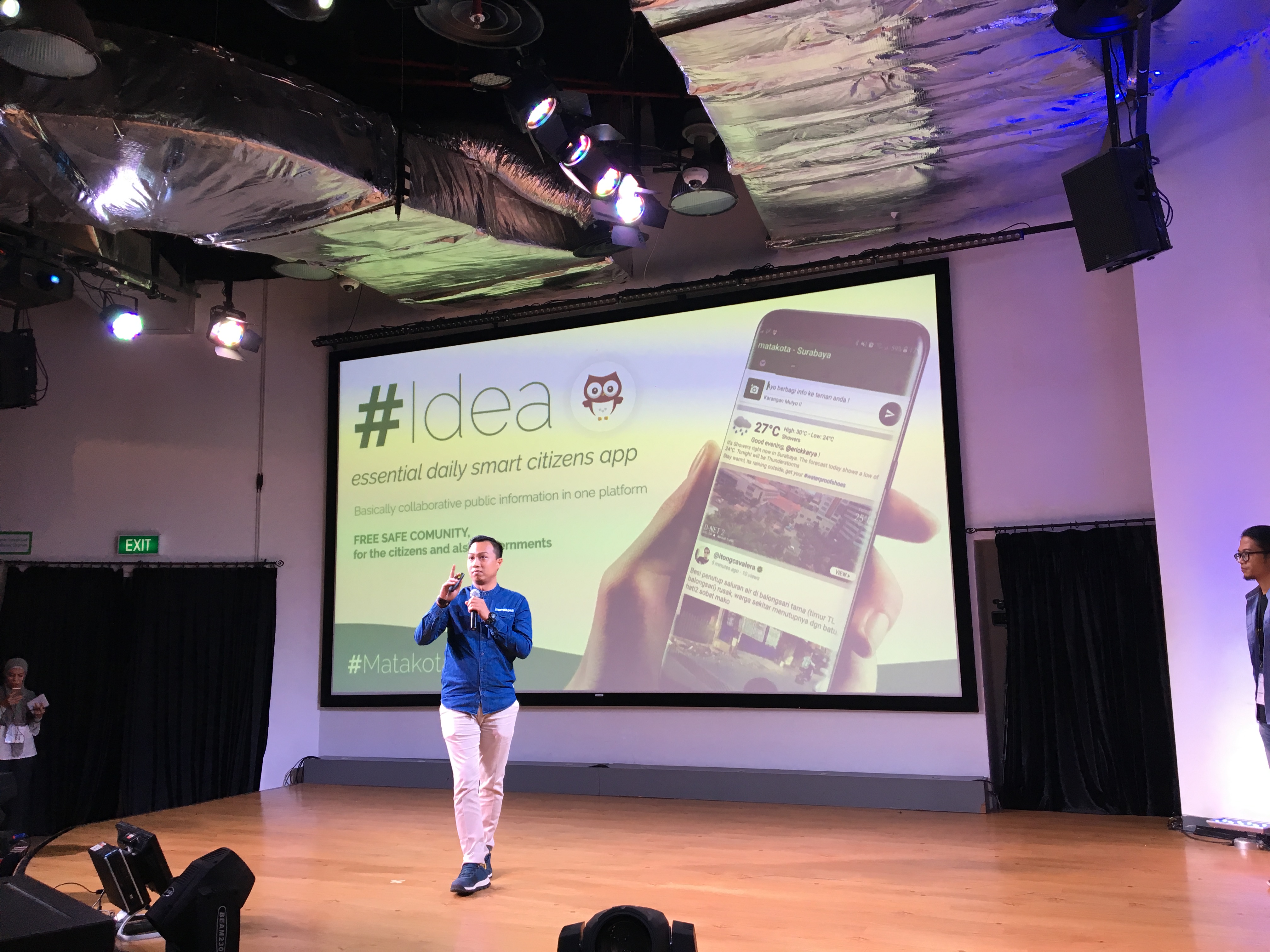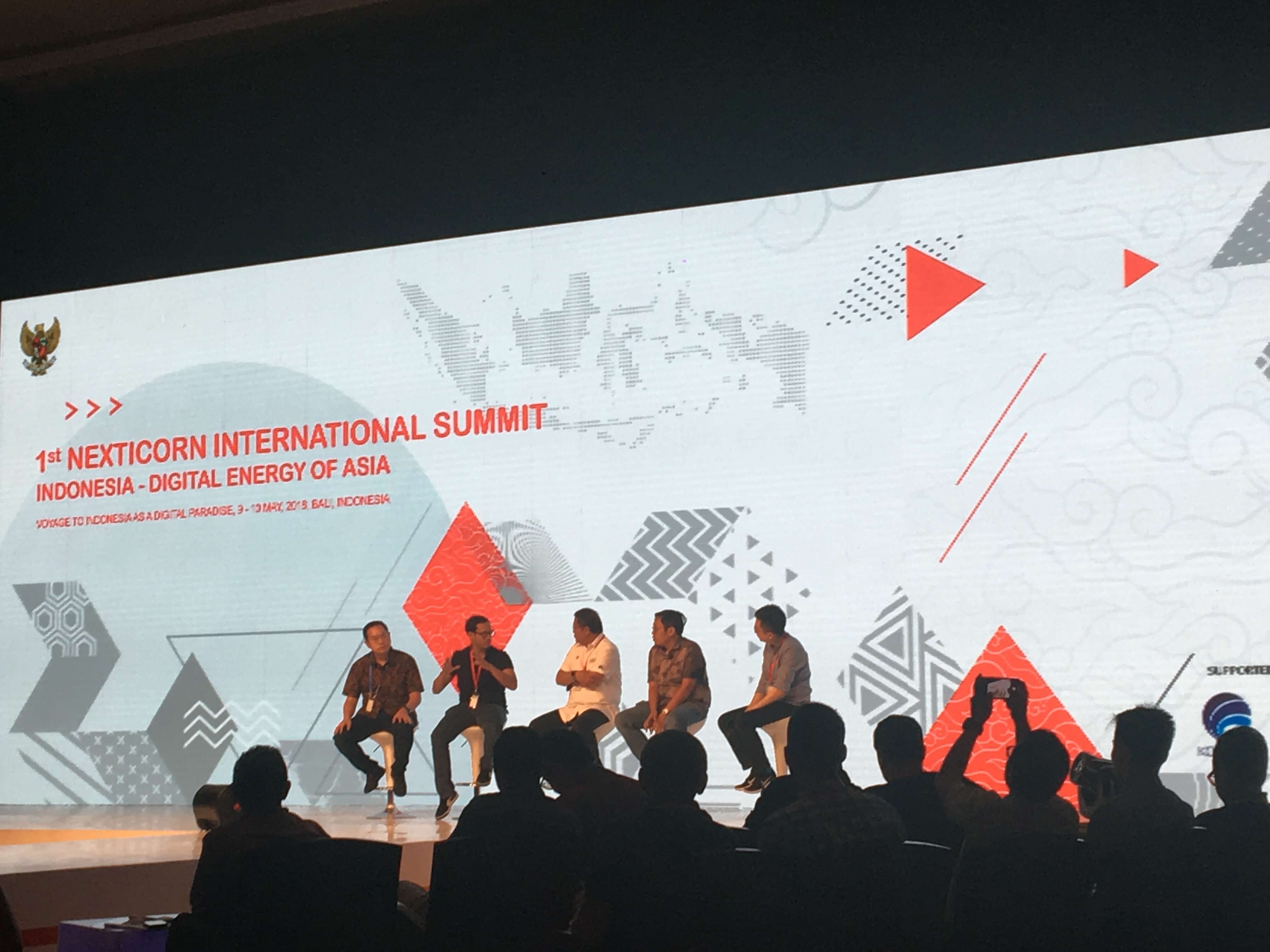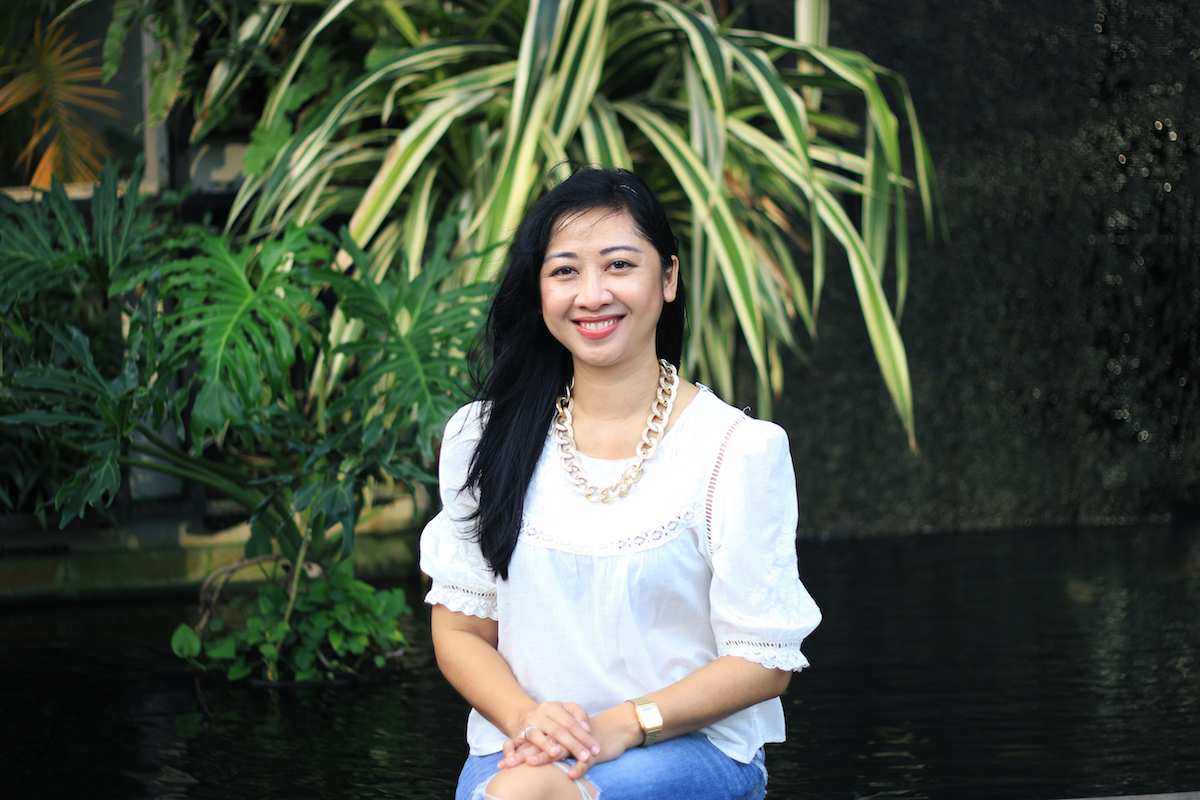Tell us a bit about yourself.
My name is Denica, and I’m the founder of SukkhaCitta. We’re a social enterprise based in Jakarta that connects artisans in villages across Indonesia with the modern global market.
With a background in Economics, I worked for the World Bank when I first returned to Indonesia. There, I got quite frustrated as I didn’t feel like what I was doing made any direct impact. This led me to do my own research, I wanted to understand what poverty looks like so we can find what works.
When going from village to village, I found an interesting trend. That is, poverty tends to be clustered around economic activities, on what people do. I started to narrow down my focus, and it led me to the craft industry – the second largest employing industry in rural Indonesia, especially for women.
I found out that the current system, the craft industry itself, is kind of broken. The economics seem to be upside down. People earn more from simple jobs like working in Indomaret or as a waitress then being an artisan. Artisans are aging and none of the daughters want to continue. Why would they? And yet, without regeneration, how can the craft survive?
Now, this really intrigued me. I realized that the last thing the world needs is another fashion brand. We do not need more pretty things when the way it was made is ugly. Something needs to change. A bridge needs to be built – and that’s exactly why I started SukkhaCitta. To leverage craft as a viable mean of poverty alleviation – while at the same time sustaining our craft through our modern reinterpretation.
Besides the economic aspect, what drew you to crafts over everything else?
It was also a personal attraction. As an economist, you are trained to judge production based on scale and efficiency. Yet, there I was living with the women in these villages. They would tell me how their mothers, grandmothers, shared stories through the fabrics that they made by hand. Batik was their mean of saying a prayer to their families, of meditation.
There, I realized how much stories and values get transferred like this in our culture – and how much is lost today with the rise of mass-produced clothes. With the pursuit of fast, everything becomes homogeneous. In craft, you find the story of our culture, of our humanity. And I believe it has its place in today’s time, not only in museums. We just have to make it relevant again.
Fashion has the reputation of being environmentally destructive. How can fashion be ethical while also being sustainable at the same time?
You’re right. Through my research, I was shocked to see just how dirty the craft industry is – both on the people and on the environment. In fact, it’s the 2nd most polluting SME sector in Indonesia! I feel that part of the problem is that currently, there is simply no transparency whatsoever. There is no traceability, no way to see how a fabric was made for customers like you and me.
Now, we do things quite differently. Our impact model is based on our own transparency standard: #MadeRight. It is a promise that this fabric provided a living wage, is environmentally sustainable, and at the same time sustains culture. Working with Villages, not factories, means that we are even more careful when it comes to our environmental impact because otherwise, production causes a lot of negative externalities for the community.
The price of fabric is very unique because fabric uses a lot of water and dye. Villagers will use synthetic dyes because it’s very cheap, and then they will dump it in their waterways. The problem is the community lives with the water from the rivers. That’s why in our work we use a lot of natural dyes; we actually spent almost IDR 50 million just doing capacity building so that all of our villages understand how to do natural dyeing.
At the same time, the production of clothes itself produces waste. So even if your fabrics were made ethically and sustainably, the production of fabrics into clothes produces waste. That’s why we have a lot of upcycling and zero waste programs as well — we’re turning our waste scraps into paper now, so all our tags are made from our waste as well. Our aim is not to cause unnecessary damage.
Ultimately, we believe that the way forward is not only about production, but also about consumption. So in our marketing, we focus a lot on storytelling, because we believe if you have a connection with your clothes, you’re not just going to wear a piece for two weeks and throw it away but you’re actually going to take care of it. If it’s broken you’re going to repair it, so it’s a complete and holistic cycle. If you produce ethically sustainable clothes, but you promote fast consumption — it doesn’t work as well.
In the craft industry, do you see a greater movement towards that holistic sustainable model, or are you guys going against the current?
The current for fast fashion is definitely very strong. Really. What I see in Indonesia is that of course you have this positive trend of brands trying to bring light to this issue, but the problem lies in how they go about doing it. Because you have to make sure that your solution is 10 times better than conventional practice, so you can actually contribute to solving the issues.
One of the things I saw is definitely the hype towards natural dyes. For us, it’s a natural choice. Again, because we work with Villages, not factories, we need to be very mindful to ensure our production causes no externality to the community. From this, I learnt that there is actually a difference between natural dyeing with natural process – or natural dyeing with chemical process. Unfortunately, most brands that I see in Indonesia don’t really take this into account. We need to be careful that we do not actually add to the problem.
Why is it important to empower these rural women in the first place? Why do we need to care about this demographic?
Because there’s a lot of potential for impact. What I’ve found is that nobody has ever taken the time to believe in these women. In the beginning, when I started this journey, I noticed a very strong sense of inferiority that people living in rural areas feel compared to someone from the city. The women wouldn’t look me in the eye; the prevalent mindset is that they can’t. They’ve worked as artisans for 20 to 30 years and have always been exploited, so they don’t believe that they can actually change their lives. But now, every time I go to the village, they keep harassing me about what they’re going to do next. “What new products are we going to try?”, “What new techniques are we going to learn?” There’s this new sense of optimism and hope.
And I noticed that once you empower women you empower her community as well. Especially in villages, women typically spend 80 percent of their expenditure on their family. You start noticing things, like one woman would tell me about the healthy, nutritious food that she can now provide to her kids. She started asking me about how she can best provide an education to her kids, what kind of books she can buy — so there’s this new sense of empowerment that we didn’t expect.
And most importantly is this desire to pay it forward — we didn’t start off with that in mind, but the women in the villages, they started to come to me and ask to be involved in the capacity building of other villages. When I asked why, they said it’s because they’ve been helped and now they want to help. So you start seeing that when you do this kind of work, there is also a ripple effect in the community that you’re initiating in. So that’s why I find that it’s very important to be able to empower these women, and also for them to be role models in their communities. Before we started our initiatives, typically the artisans were typically above 40 years old. Now we’re actually really happy because there are these two women under 30 that came up to me asking if they could be trained as well. And I couldn’t imagine doing all this without doing it for the crafts sector. Because suddenly they feel so proud — they feel like they’re visible to the market again, they feel like there’s actually value in what they do, and the pride is just unbelievable.
In your work, you’ve gone into the villages, and you’ve interacted with these women. What would you say are the main challenges these rural women face in their everyday lives?
It’s the general mindset, this social conditioning that after getting married they should be moms and that’s it. It was actually very startling for me during the last field trip; we were sitting in a circle and I was asking them about why there were no women entrepreneurs in the village. They said, “What would we sell, who would buy anything? That’s what men do, right? They work and we just take care of the kids.” I asked them about whether they thought about something beyond just being a mother, because obviously being a mother is not enough for them, right? And they just look at me, puzzled, “No, we haven’t.” Because their mothers were like that, their grandmothers were like that, so they have never left the village. They don’t know a world beyond this.
I was doing a survey about living wage and I wanted to know what was the living wage for that village, so we broke down their expenditure and found that the bulk of it was from their kids’ snack money. Everyday, kids would take IDR 8,000 to 10,000 just to buy snacks. And I asked them what snacks they would buy and they said, “Oh you know, just chiki (a type of snack) that they buy from the warung (small local eateries).” So I asked them one question: “You farm a lot of moringa. Why don’t you just create snacks which are actually healthier than chiki? Make them cute, colorful. Your kids can just buy that instead.” And they look at me and it’s as if they think of it for the first time.
And that’s when I found out that the biggest problem in rural Java is this social norm. These women were not educated, and so they don’t have the courage to dream beyond things as is. But once you start introducing entrepreneurship into their minds, it’s really quite amazing. I just went back to the village last week, and they showed me samples of different snacks that they made and they asked me how to brand it and everything. They can clearly do business; it’s just about whether anybody would take the time to sit with them and guide them through this process. I feel like when you empower women to be entrepreneurs, the impact is a lot larger than men.
Speaking of women in entrepreneurship – you yourself are a woman entrepreneur, but the percentage of women entrepreneurs is quite small in comparison to how many male entrepreneurs there are in Indonesia and around the world. How is it being a women entrepreneur, but being a minority in that sector?
I actually try to use that as an advantage. Because there’s so few of us, it’s very easy for us to be noticed. I personally never noticed that there was any difference between women versus men. What I noticed is that men tend to be impressed to hear that you as a woman dare to go to these villages, stay with them for a few days and do this kind of work. I do feel that especially in our field it’s very advantageous because the community trusts women more. And I think as a man it would be a lot more difficult to do what I do. Because you work with women, and how comfortable would they be with some man living in their house and telling them different concepts of sustainability and design and everything? So you have a different kind of credibility, socially, as a woman. I think that’s a plus point.
Do notice any differences between the mindset of women entrepreneurs and male entrepreneurs?
Yes, in terms of the way that we think about scaling businesses. There’s definitely not much aggression in terms of scaling when you meet a lot of women founders, especially in the field of sustainable fashion. They seem to be very content with where they are. Let’s say they impacted five, ten people, and they seem to be very happy. But they don’t understand that it’s not enough just to do that, because the problem is so big that you need to think big as well. What the industry needs is not five women you’ve impacted, but a sector change. That’s why it’s very important that startups like ours need to grow, to show that it’s possible to grow in a way that does not exploit the environment or the people in it.
On the other hand, male entrepreneurs seem to really think about this. Maybe they typically go more into the tech sector which is easier to scale, so you find them constantly talking about acquisitions, about percentages, about growth — whereas women entrepreneurs, we’re playing nice. We don’t want to compete, we feel like we should form a community, and how do you balance these two? Because you find a lot of startups that remain small, but then how do you create sector change?
What direction do you see your impact model growing: breadth or depth?
Both. Our impact model is grounded in our Jawara Desa program (village champion). In the beginning when I first started, we worked directly with artisans. So literally, if I worked with 50 women, it would be 50 houses I directly had to visit and train. We changed our impact model because that was not scalable. In each of our village, we have a Jawara Desa who we select, train and provide access to microcredit to so they can start their social enterprise on the ground level. In a way, we transfer our DNA, our values to build mini SukkhaCittas on the village level.
In general, we see each of our Jawara Desa leading up to 20 artisans. In that sense, by scaling our breadth, we directly intensify the depth of our impact. We’re already seeing it happen; it’s really interesting when you introduce the concept of entrepreneurship into a village. They start being entrepreneurial in the ways they solve village issues as well. Last field trip I went to visit this village, and on their walls, I saw that they put up A4 papers. Apparently they were brainstorming how to improve the education of their village. It really gave me a sense of validation to continue with this impact model.
Do you have any advice for young girls who might also want to build their own social enterprise? To face all the things that might have to go with handling a social enterprise?
Be patient and persevere, because nobody will prepare you for the job. It is very hard. Not only do you have to take care of the whole business side — because if you just want to keep asking for donors you should be an NGO, you have to understand that you need to be as cutthroat as conventional enterprises — but at the same time, you must maintain your mission. It is seriously very difficult. You will experience higher highs than your typical job, but also very much lower lows. My biggest advice is really to stop giving your power away, because as women sometimes we’re scared to think big. We don’t think that we’re capable or that we don’t have the experience or we don’t have whatever is required to do it, but I find that if this is truly your mission then you’ll find a way. You’ll learn, you’ll find people, you’ll make alliances to achieve your mission.
